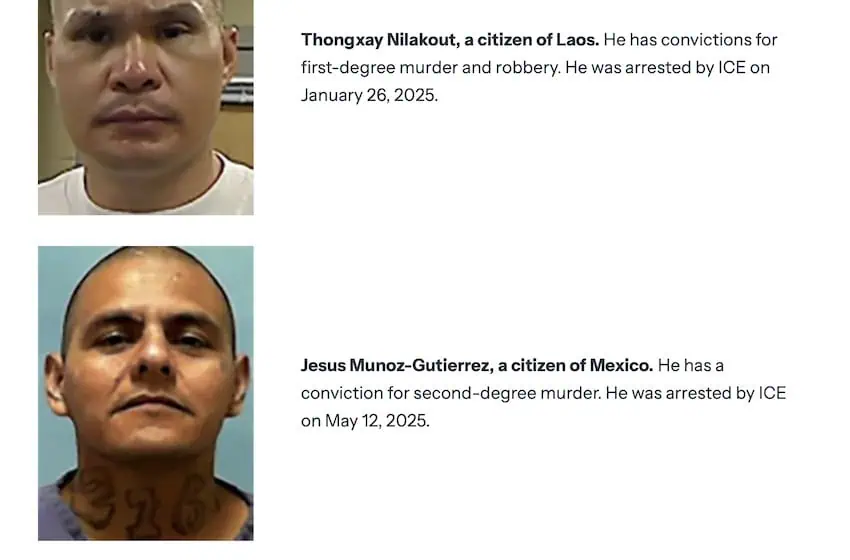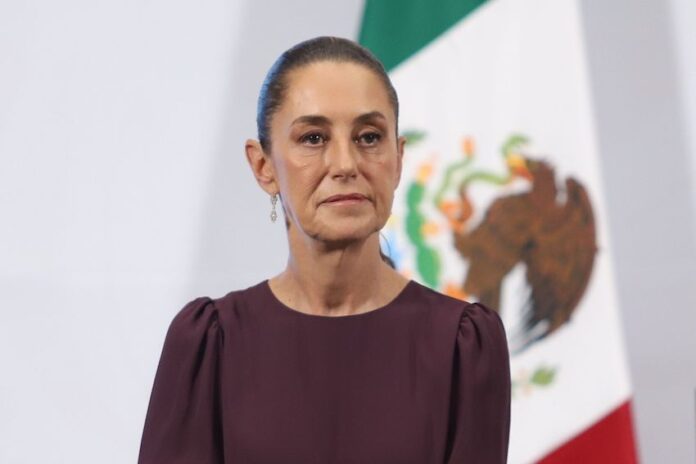President Claudia Sheinbaum noted at the start of her Thursday morning press conference that she postponed its commencement to 8:30 a.m. because she had an “early call” with United States President Donald Trump.
“We’re continuing to talk about trade issues, … we’re still negotiating,” she said, referring to Mexico’s efforts to win relief from U.S. tariffs, including duties on vehicles, steel and aluminum.
Sheinbaum said there is a “good relationship” and “good communication” between the Mexican and U.S. governments, and mentioned that Economy Minister Marcelo Ebrard will travel to Washington D.C. on Friday for more talks.
“We’re working to reduce the tariffs even more,” said the president, who has now spoken to Trump by telephone on seven different occasions.
‘We’re going to keep working so there is no tax on remittances’
Sheinbaum noted that the United States House of Representatives approved on Thursday morning Trump’s major budget bill — the so-called “One Big Beautiful Bill.”
The bill, which will now be considered by the U.S. Senate, includes a proposed 3.5% tax on remittances sent out of the United States by non-citizen immigrants. An earlier version of the bill proposed a higher 5% tax on remittances, which flow into Mexico in their tens of billions of dollars annually from the United States.
The reconciliation bill passed overnight by the House INCLUDES a 3.5% tax on remittances by people in the US sent abroad — down from the original 5% proposal. https://t.co/noP7LycIhu
— Eric Martin (@EMPosts) May 22, 2025
“The tax rate on remittances was reduced from 5% to 3.5%,” Sheinbaum noted.
“In any case, we don’t want there to be a tax,” she said.
“So we’re going to keep working, … we’re going to keep working so there is no tax on the remittances our compatriots send to their families in Mexico,” Sheinbaum said.
Mexican government officials and lawmakers have been lobbying U.S. legislators to eliminate the proposed tax.
Sheinbaum — who has described a tax on remittances as “unconstitutional in the United States because a double tax would be charged” — said last week that Mexico would do “everything that is necessary” to ensure the proposed tax doesn’t become law.
On Thursday, she said:
“We’re going to continue speaking with Republican and Democrat senators, … explaining why it’s not good for there to be a tax on remittances.”
Sheinbaum said that she didn’t discuss the proposed remittances tax with Trump, but stressed there will be “other calls” with the U.S. president.
Sheinbaum: Trump administration ‘perhaps’ first US government to recognize arms trafficking problem
Sheinbaum said it was “very important” that United States Secretary of State Marco Rubio acknowledged on Wednesday that Mexican cartels use firearms manufactured in the U.S.
The president noted that she raised the issue of arms trafficking from the United States to Mexico during her very first conversation with Trump, which came two days after the U.S. president’s election victory last November.
Since Trump began his second term, the U.S. government has made “several seizures of weapons,” she said.
“… The Trump administration is, perhaps, the first [U.S. government] that in effect acknowledges there is trafficking of weapons from the United States to Mexico and wants to combat it,” Sheinbaum said.
Mexico ‘reviewing’ case of Mexican deported to Africa by US
Sheinbaum noted that a “Mexican citizen who was detained in the United States” was deported by the U.S. government.
She was referring to Jesus Muñoz Gutiérrez, who was arrested earlier this month, “convicted of second-degree murder” and “sentenced to life confinement,” according to the U.S. Department of Homeland Security (DHS).
The United States intended to deport Muñoz and seven other men — “some of the most barbaric, violent individuals illegally in the United States,” according to the DHS — to South Sudan, but they only made it as far as Djibouti before a federal U.S. judge ruled against their deportation to South Sudan.
“A Federal Judge in Boston, who knew absolutely nothing about the situation, or anything else, has ordered that EIGHT of the most violent criminals on Earth curtail their journey to South Sudan, and instead remain in Djibouti,” Trump wrote on social media.
“He would not allow these monsters to proceed to their final destination. This is not the premise under which I was elected President, which was to PROTECT our Nation,” Trump wrote.
Sheinbaum said that her government was not informed of the deportation of the Mexican man.

“If he wants to be repatriated, the United States would have to bring him to Mexico,” she said, adding that he would “very probably” be required to remain in prison in Mexico.
“The entire case is being reviewed,” Sheinbaum said.
‘There is confidence in investing in our country’
Sheinbaum said that the “issue of tariffs” — primarily a reference to Trump’s protectionist agenda — has significantly changed the global economy.
However, “the economic indicators for Mexico are very good,” she said.
Sheinbaum highlighted that foreign direct investment in Mexico in the first quarter of the year, as reported by Ebrard earlier in the press conference, was higher than in the same period last year despite global economic uncertainty.
“That means there is confidence in investing in our country,” she said.
Government not planning to bolster security for officials
In light of the murder of two aides of Mexico City Mayor Clara Brugada on Tuesday, a reporter asked the president whether her government would increase security for officials, including herself.
“No,” responded Sheinbaum. “We don’t plan to.”
The president, like her predecessor Andrés Manuel López Obrador, has a team of assistants who assist her in security matters, but doesn’t have an actual security detail.
After a reporter suggested last month that she could be vulnerable to an assassination attempt during her weekend tours when she gets up close and personal with supporters in various parts of the country, Sheinbaum appeared unperturbed by the perceived, or real, risk to her safety.
“One can’t move away from the people,” she said.
“The day we distance ourselves from the people is the day we stop being a government of the people and for the people. So we’re going to remain close [to the people], particularly on weekends,” Sheinbaum said.
By Mexico News Daily chief staff writer Peter Davies ([email protected])
